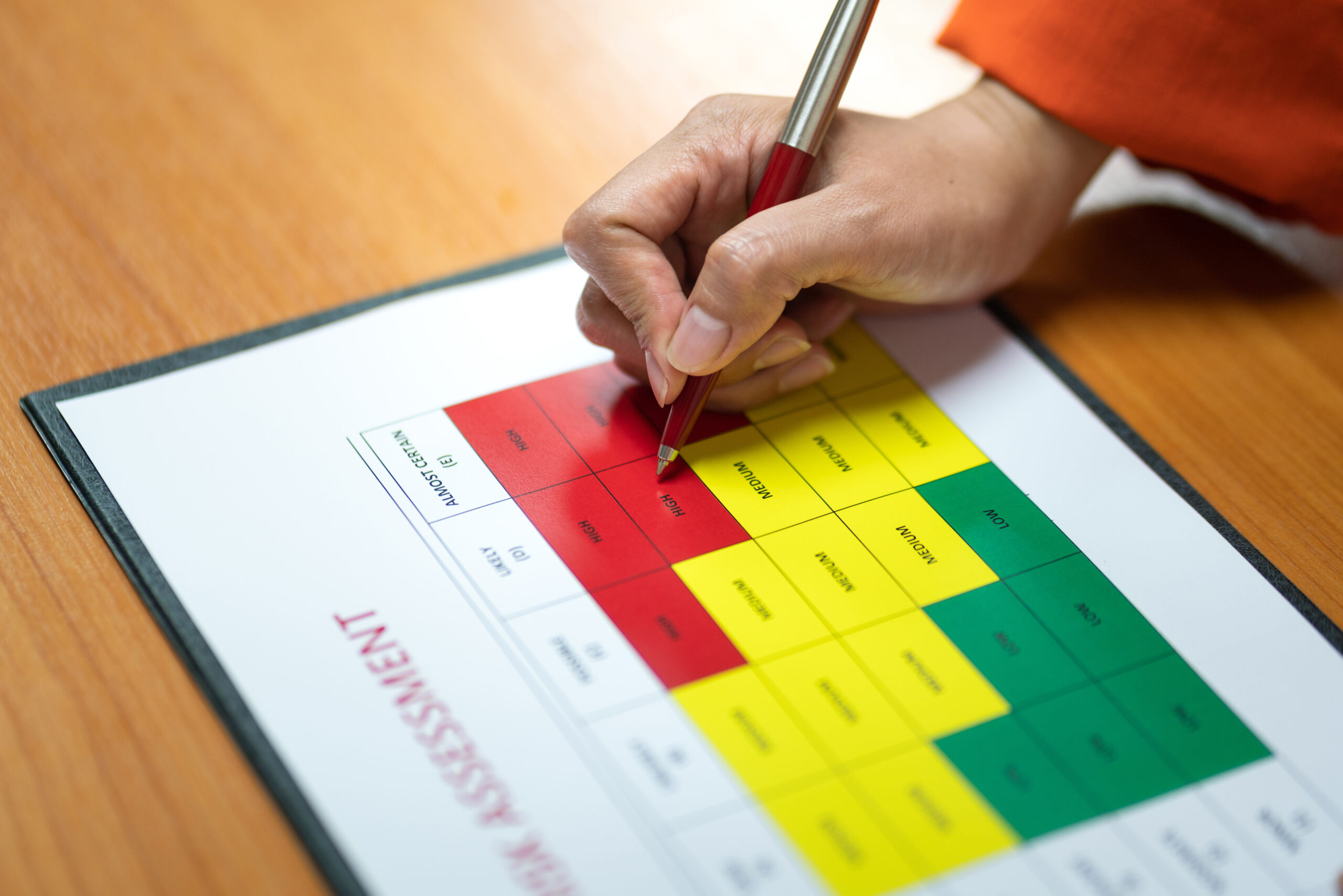Running a small company, charity, or sports club comes with challenges. Things can go wrong, and when they do, it helps to be prepared. That’s where a risk register comes in.
What is a risk register?
A risk register is a simple list of things that could go wrong in your organisation. Think of it as your “what if” document. It helps you spot problems before they happen and work out how to deal with them.
For each risk, you note down:
- What could happen
- How likely it is
- How bad it would be
- What you’ll do about it
Why bother with one?
A risk register helps you stay one step ahead. Rather than firefighting problems as they crop up, you’re ready for them.
It also shows others you’re taking things seriously. Whether that’s funders, investors, members, or regulators, they’ll have more confidence in an organisation that manages risks properly.
Plus, it gets everyone thinking about risks. When your team knows what could go wrong, they’re more likely to spot warning signs early.
For small companies
Small businesses face all sorts of risks: cash flow problems, losing key staff, IT failures, or new competitors. A risk register helps you keep track of these and make sure you’re doing something about the ones that matter most.
You don’t need anything fancy. Start with the main areas of your business and list what could go wrong in each. Then think about how to reduce those risks or what you’d do if they happened.
Keep it updated as your business changes. New risks will emerge, and old ones might matter less.
For charities
Charities have their own particular worries. Fundraising might dry up, key volunteers could leave, or you might fall foul of charity regulations. Your reputation matters hugely too – bad publicity can seriously damage donations and support.
When creating your risk register, think about:
- Funding and donor relationships
- Compliance with charity law
- Safeguarding vulnerable people
- Your public image
Review it regularly, especially when things change in your charity or in the wider world.
For sports bodies
Sports clubs and governing bodies deal with specific risks around events, facilities, and people. Injuries, venue safety, safeguarding issues, and event finances all need considering.
Your risk register should cover:
- Athlete and participant safety
- Facility and equipment checks
- Event management and security
- Insurance and financial protection
Make sure someone is responsible for each risk. Regular reviews help you stay on top of things, especially as regulations or your operations change.
Preparing for funding
If you’re looking for investment or grants, a risk register strengthens your case. It shows you’re serious about managing your organisation properly.
Include it in funding applications. Explain what risks you’ve identified and how you’re handling them. This builds trust and shows you’re thinking ahead, not just hoping for the best.
Building confidence
Risk management isn’t just about avoiding disasters. It’s about building a resilient organisation where everyone knows their role in keeping things on track.
When you regularly review your risk register, you can adapt to new challenges quickly. This flexibility helps your organisation survive and thrive in the long run.
Making it easier
Managing risks doesn’t have to be complicated, but it can be time-consuming, especially if you’re juggling lots of different risks and people.
Digital tools can help. Platforms like governance360 bring everything together in one place, making it easier to track risks, assign responsibilities, and see what’s happening at a glance. You can update things in real time and make sure nothing slips through the cracks.
Getting started
Don’t overthink it. Start with a simple spreadsheet if that works for you. List your main risks, rate how likely and serious they are, and note what you’re doing about them.
The important thing is to begin. You can always refine your approach as you go. Regular reviews matter more than having the perfect system from day one.
A risk register helps you sleep better at night. It shows you’re prepared, builds confidence with stakeholders, and makes your organisation stronger. Whether you’re running a small business, charity, or sports club, it’s worth the effort.
Want to see how governance360 can help you manage risks more effectively? Download our risk management whitepaper to learn more.

